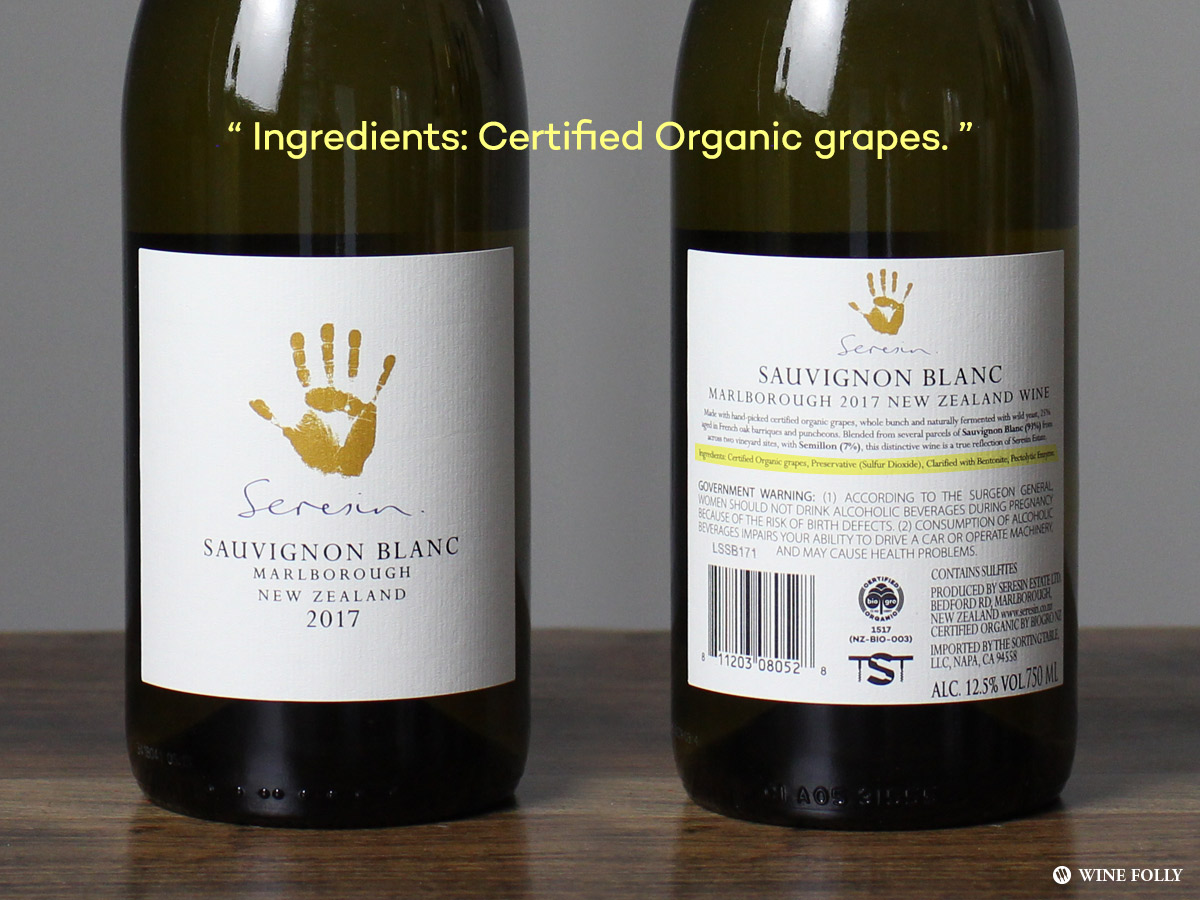They look and taste the same as conventional wines, but they’re better for the earth (and us)! Here are three reasons to drink wines made with organic grapes.

1. They look, taste, and cost the same as other wines.
One of the biggest misconceptions about wines made with organic grapes is that they don’t taste as good as conventional wines. Fortunately, this is not true!
Wines labeled “made with organic grapes” are from organically tended vineyards. These grapes ripen just like regular wine grapes. And, they’re made into wine in the same way.
So, they won’t taste any different from conventional wines.
Organic grape wines are also priced pretty competitively.
For example, we went shopping for Sauvignon Blanc and found two Chilean wines. The organically grown version was $12.99 and the non-organic version was $11.99.

2. They’re better for you.
Here are three interesting facts about wines made with organic grapes that suggest an improved human health impact:
- Wines have reduced sulfites. (Conventional wines may have up to 350 parts per million vs. no more than 100 ppm for organic grape wines).
- Grape growers are not allowed to use glyphosate (aka RoundUp). Napa recently banned the use of this chemical due to the potential carcinogenic hazards.
- Winemakers are not allowed to use genetically modified yeasts for fermentation.
Of course, sulfites, glyphosate, and genetically modified yeasts haven’t been proven to cause bodily harm in most humans. So, reducing intake is more of a helpful precaution. Either way, seeking out “wines made with organically grown grapes” will hit all those boxes.

3. They’re better for the environment.
Organic, biodynamic, and “beyond organic” (such as permaculture) farming techniques are leading the way to improve our soils, water, air, and wildlife quality.
One big impact we’ll see in California if we move to more organic farming will be the increase of Monarch butterfly populations. Currently, weed killers destroy the butterflies’ main source of food (milkweed) and their numbers have dwindled by more than 90 percent. 🙁
Still, it’s important to note that organic farming is more difficult for several reasons:
- Pest infestations and plant diseases are much harder and time-consuming to solve. They require creative solutions through patient observation.
- Annual farming costs tend to be higher due to the need for more hands-on work.
- Yields tend to be lower because of reduced chemical use.
- Responsible land-use reduces the amount of land available for crop production.
How you can help.
The change starts with us, the wine drinkers. Our buying habits are what gives grape growers the incentive to make big changes to their farming programs. It’s not going to happen overnight, but it can happen in the next two to three years.
How?
Well, when we request and buy wines made with organically grown grapes, we incentivize farmers.
One way to start this wave is to change how you buy affordable, daily drinking wines. Make an effort to pick out organic grape wines.
